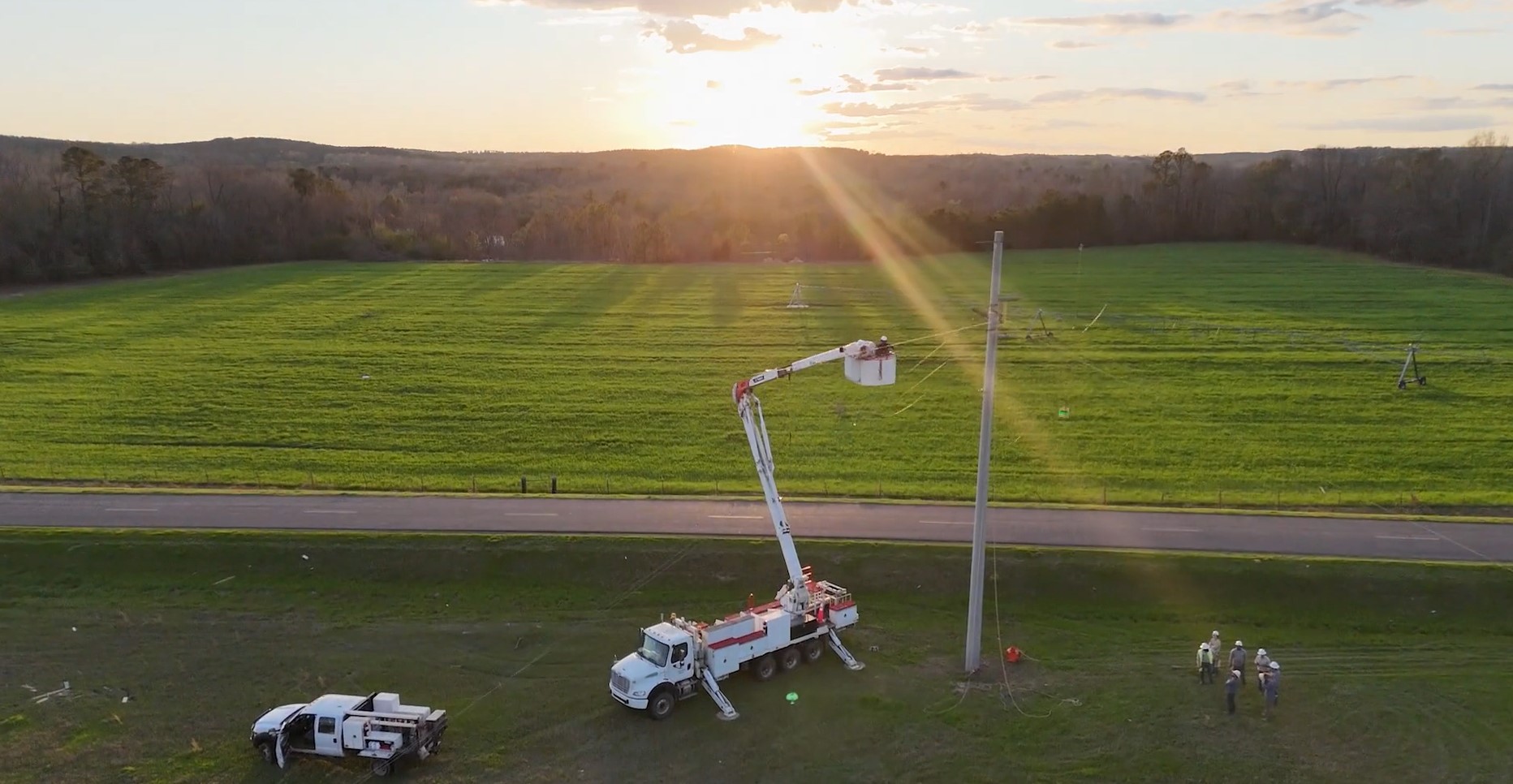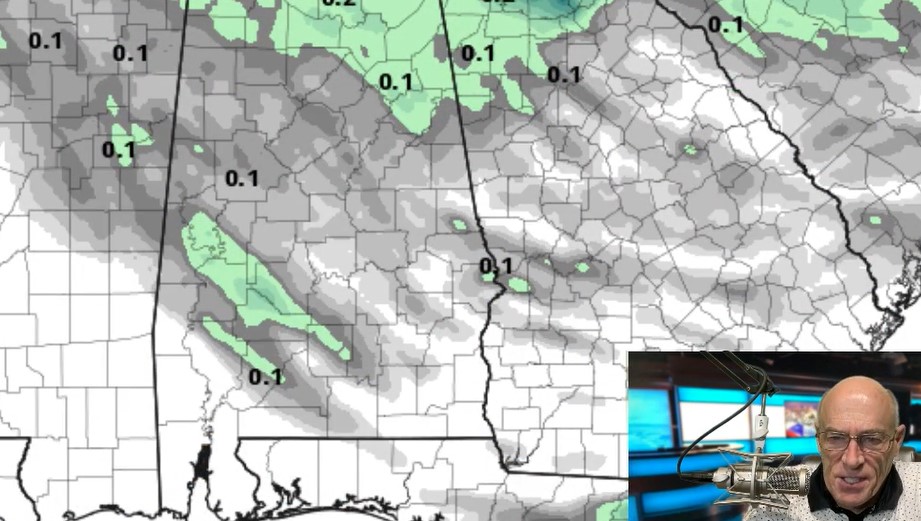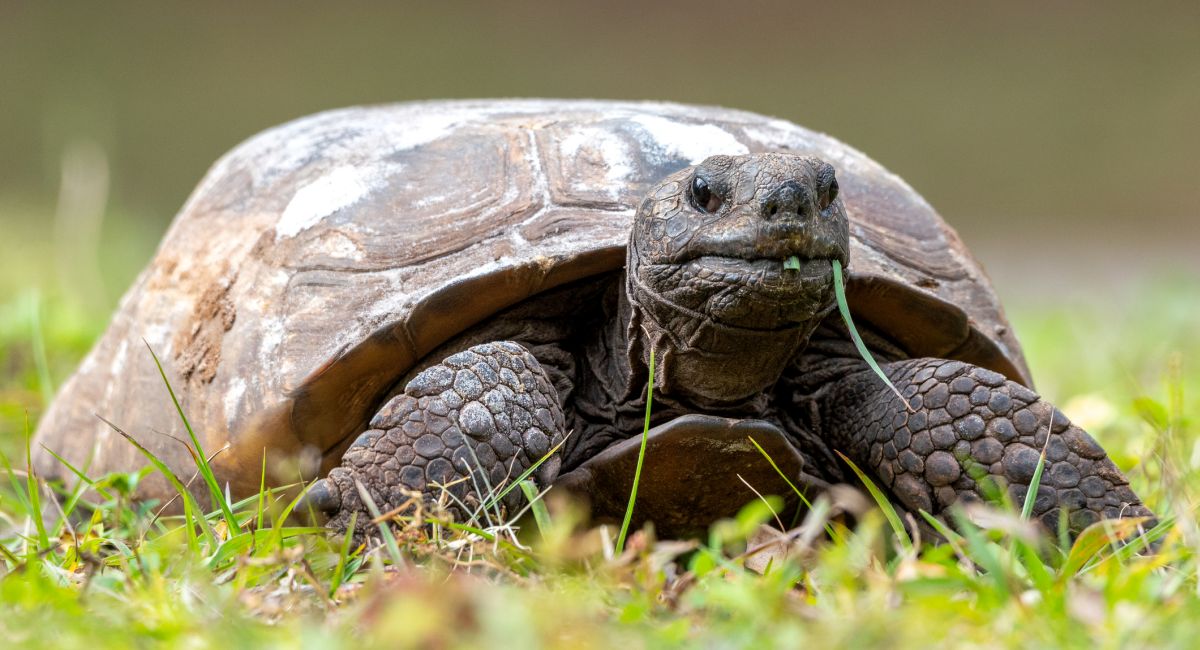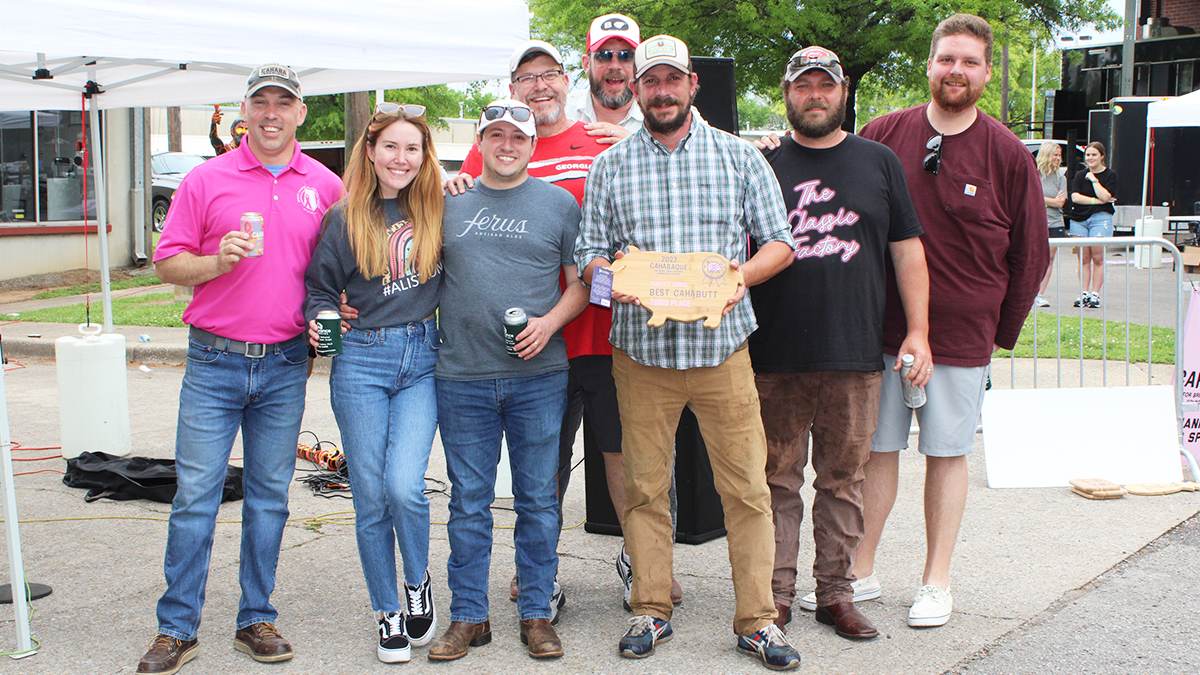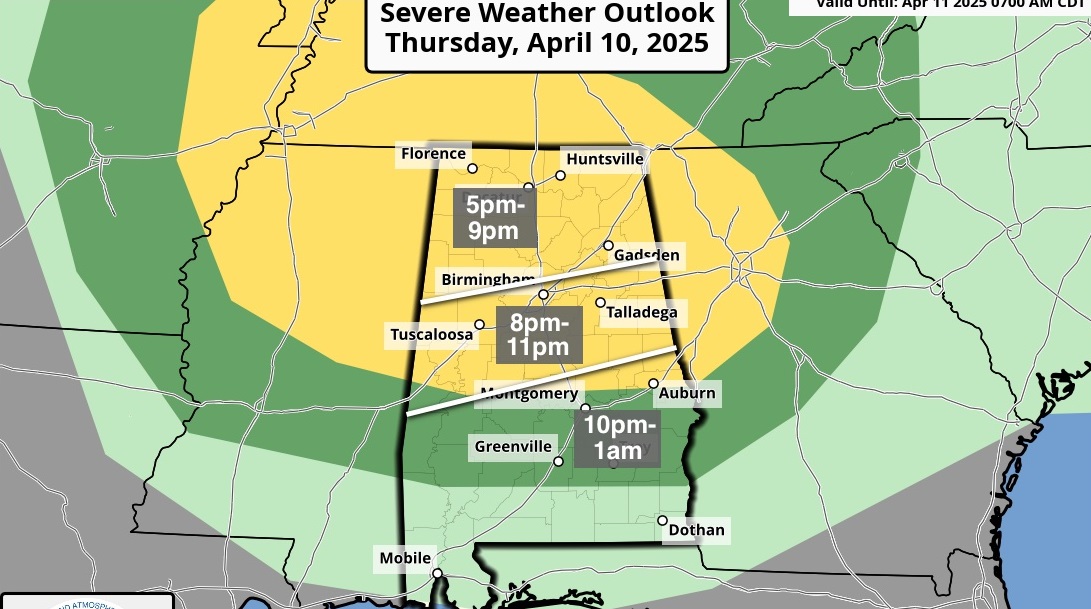Robert and Annie Perry working to ensure a brighter future for Native Americans in Alabama Bright Lights
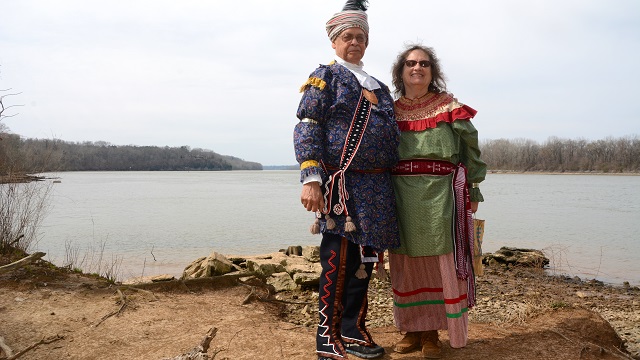
Robert and Annie Perry at Tuscumbia Landing. (Karim Shamsi-Basha/Alabama NewsCenter)
“My  people were forcibly moved in the 1800s.”
people were forcibly moved in the 1800s.”
The statement sounds like a line from a movie, but it’s not. Robert Perry, a Chickasaw Native American who lives in the Muscle Shoals area, said it when we began our interview on the edge of the Trail of Tears. The path with the sad past goes through Sheffield, but to Robert and his wife, Annie, it is much more than a tourist attraction.
Robert led me down the trail to the area that will be known as Tuscumbia Landing. He and his wife were dressed in traditional Chickasaw clothing. Their smiles were solemn, and their pride was humble. He walked to the edge where land touched water, bent down and grabbed a rock, then told me the history while feeling the rock with his fingers.
Robert and Annie Perry working to ensure a brighter future for Native Americans from Alabama NewsCenter on Vimeo.
“My ancestors walked on these rocks and were forcibly moved in the 1800s. Now, we are finally honoring them with the landing that will be constructed here. It will tell the story and educate people on the removal that took place,” Perry said gazing west, where steamships were loaded with thousands of Native Americans heading to Oklahoma. Looking at his face, I could tell the conflict gave way to peace as he shared the history.
“After the 1830 Indian Removal Act, the American government moved the Cherokee and Muskogee Creek tribes through this very spot we are standing on,” Perry said. “I was born after that and when grandmother came to visit, she would always say, ‘This tribe would be strong if you would give back to it.’ That inspired me to do what I am doing today,” Perry said.
The Chickasaw Nation Hall of Fame inducted Robert Perry in 2011, but in the years before and after that huge honor, he has continued his mission. He and Annie have a passion to share the history of the Native American culture with schoolchildren and adults alike. He has written several books and magazine articles, and has received national awards for his continuous effort to spread knowledge and compassion toward a way of life that was once fought.
Annie said that while she is not a Native American, she has the same passion as her husband.
“We are both lovers of history and education. Our mission in life is to keep people aware of what happened to the Native Americans,” Annie said. “We also have the goal to return the gift we’ve been given to others. We encourage people to be creative and active in this pursuit. My husband has been considered an ambassador and a historian to the Chickasaw people. We are determined to return the gift.”
I asked about this “gift” they kept mentioning. Robert smiled and pointed to the earth below us. Holding hands with Annie, they walked the Trail of Tears in front of me.
I couldn’t help but feel helpless in the face of a grim past. But thanks to efforts by people like the Perrys, the future will be brighter.
Alabama Bright Lights captures the stories, through words, pictures and video, of some of our state’s brightest lights who are working to make Alabama an even better place to live, work and play. Award-winning photojournalist Karim Shamsi-Basha tells their inspiring stories. Email him comments, as well as suggestions on people to profile, at karimshamsibasha@gmail.com.













